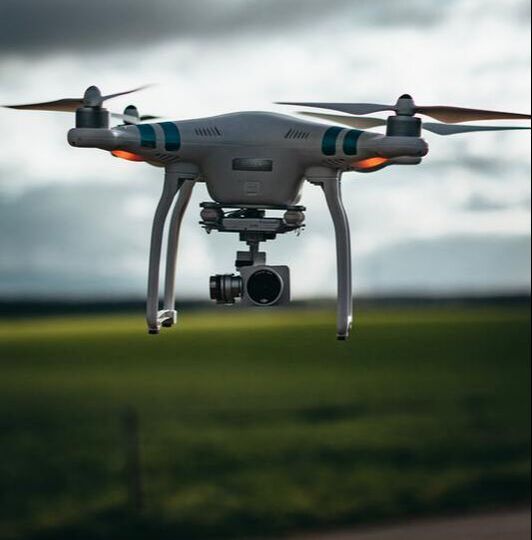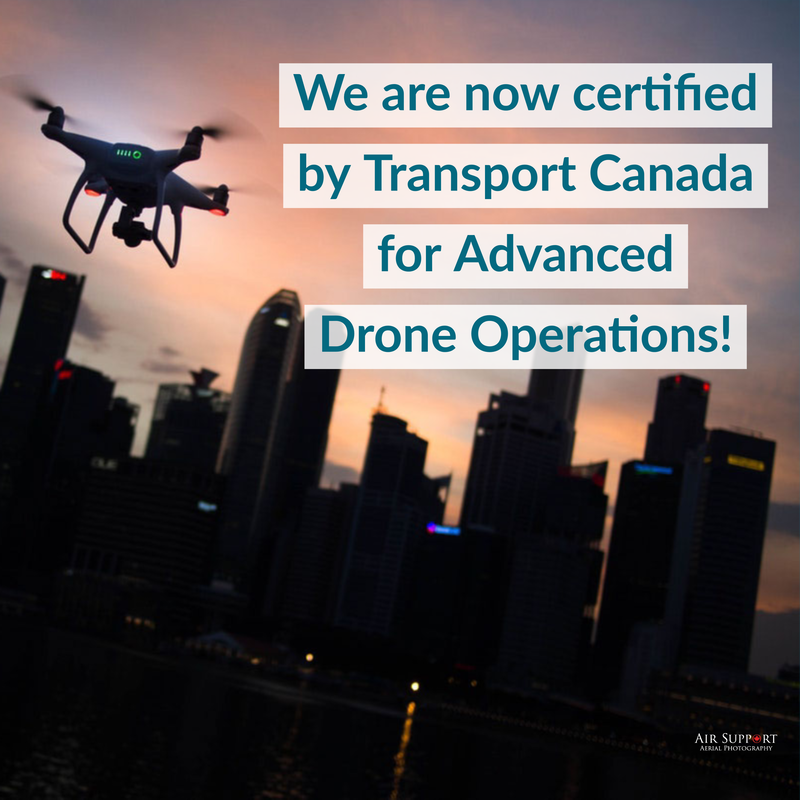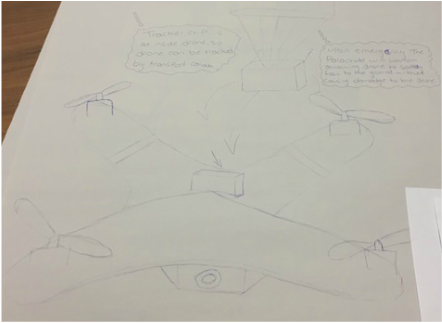|
Very Exciting news indeed! First reported here off of DJI's news page, DJI drones (list in the link) are now allowed to be in controlled airspace as well as flying over people under the new Transport Canada rules set to come into effect this June 1st.
As a DJI drone operator ourselves, this opens up so many new, unique and exciting opportunities to both us and our clients. We are excited to provide amazing aerial media in a safe, professional and privacy-respecting manner. Indeed, Canada has done a very good job with the new rules thus far. Any thoughts or questions? Let us know in the comments below!
1 Comment
The results are in, and they look great! Under the new Transport Canada rules for drones starting June 1st, 2019, RPAS operators (drones are now called RPAS) are required to hold Basic or Advanced certificates to fly RPAS commercially. We at ASAP officially received our Advanced Certification this past weekend are are proud to announce this means we will continue to be able to provide our amazing services and media and are now available in even more and unique locations! For more information, feel free to contact us directly!
Thank you to all who have supported us on our journey over the years, and here's to the many more to come! ~H It is both an exciting but stressful year for drone operators around Canada! June 1, 2019 is the day that the new drone regulations from Transport Canada come into effect. You can read the new upcoming rules here of Transport Canada's web site, but rest assured, we have already completed our certifications! Also check out the below videos for more information! Do you fly a drone for fun in Canada? Awesome! Make sure you know these laws, and help make all airspace safe!
As seen by the many memes and posts across the internet, there is a real wave of calling "drone pilots" a joke. Calling drone operators pilots, for some, conjures up images of under-qualified persons flying drones and saying to all of their friends and family they're full fledged mavericks and pilots, while traditional pilots (like myself) took time and effort to get our pilots licence(s), ratings, etc...
As defined on the Transport Canada website, a PIC (Pilot in Command) is defined by as "The pilot having responsibility and authority for the operation and safety of the aircraft during flight time.". Furthermore, the Transport Canada definition for aircraft is defined as "Any machine, including a rocket, capable of deriving support in the atmosphere from reactions of the air". So from a definition standpoint, yes, commercial operators of drones are legally deemed "pilots". To prove this even further, Transport Canada calls drone pilots pilots as viewed from their site here on the Pilot knowledge requirements for UAV's (link). While they are not be flying friends and family around, drone pilots are indeed, well, pilots! Just not in the traditional sense. (I still think being an actual PPL pilot is more badass). Having your UAV SFOC, or PPL, etc... We are ALL responsible for the safety and wellbeing of our operations, and must remember to work together to keep airspace open, secure and safe for everyone! This is a very important, yet sometimes difficult subject to talk about. With drones becoming more cheaper and more easy to get, there stands to reason that people who are not qualified or do not have "common sense" may attempt to fly for money without thinking about the safety of the public or the legal requirements as we have discussed before. If they are a legitimate operator, they should have talked to you and other neighbours in the area to let you know what is going on before flying a drone. Below is a few steps to go through if you think they are not flying legally (as a commercial entity). Lets say you're at home, and a drone is flying above your house, or maybe it is flying close to your kids, or simply over your property, or is doing dangerous manoeuvres near your property. What do you do?
Below is a simple process one should follow if you get into one of these situations with a suspected commercial operator (NOT a hobbyist). Before we start, If you feel that your life or someone else's life is in immediate danger, call 911! (please note I said danger and not being annoyed). 1. Talk to the Operator (If present) The first stage you should always take if possible is simply talking with the operator of the drone. If they are flying commercially legally, they should have a spotter (A second person with them meant to look out for people walking, cars, etc...). Staying 100 feet away from their operation, yell to get their attention. Do not approach the operators if the drone is still in the air. Once the drone is landed, you can then approach and let them know your concerns. Please be courteous, since they might be a legitimate operator, and they have talked to the other neighbours but possibly forgot you! (It happens, we are all human). If you suspect they are working 'under-the-table' You may ask to see their S.F.O.C. and/or insurance (which they should have both at the operation if they are a legitimate operator). An S.F.O.C. (Special Flight Operators Certificate) is paperwork from Transport Canada saying this operator is allowed to fly commercially, and the insurance of the operator must be at least $100,000 for liability. 2. Reporting to Transport Canada If you deem that they are an illegitimate drone operator, then you may want to report them to Transport Canada (Link to reporting page here). Simply follow the process and fill in the required fields. Reporting an unsafe or an illegitimate operator helps make both the Canadian drone industry and your community a safer and more connected place. 3. Ask Questions, and get informed! Do you have questions if something is legal or not? You can contact Transport Canada with questions, or even contact a legitimate operator like us! We are always willing to help educate the public! Have questions right now? Feel free to comment below! Click here for the official Transport Canada Drone information page! Click here for the official Transport Canada Drone Incident Reporting Page! A good little video from Henry describing the basic rules! Enjoy!
This past Wednesday, Air Support was invited to Georgian College to participate in the Simcoe County I.C.E. education program. This program brings in high school students from around Barrie, as well as local businesses. This year, there were 4 businesses (including us), and as small business owners, we had to give the students and their groups a "problem" in our field of business, and let them give their own ideas to solve it. For our challenge, we gave the students the problem of Commercial drone regulation. After half-a-day of group work and debate, the students all gave great presentations, and purposed some very interesting ideas. Before we say what they are, we must announce that most of the students knew exactly what drones are and what they are used for, but they were all un-educated in regards to current real-world Transport Canada drone regulations. Here are some of the ideas they gave: 1. Licence: Most of the groups agreed upon some sort of licence/permit that commercial operators should have. One group even went to the progressive idea that perhaps the business itself should be given a licence as an operator, as well as individual licences for individual pilots. This is interesting for this is how current regulations work with the yearly renewed SFOC that current operators must have for their commercial operations. 2. Demerit Point System: One student group thought that drone use should be regulated like cars. The operators should be given more leniency in regards to regulations, but when rules are broken, there needs to be a defined enforcement system, such as the demerit points system for drivers. Operators would accumulate points with increasing penalties until eventually losing their licence. 3. Both Hobbiest and Commercial Drones should be regulated: Students across group boundaries agreed that both commercial, and private operators should be regulated. The general idea was that is commercial operators are regulated, why shouldn't non-commercial be regulated for safety as well. While commercial use should indeed be more regulated due to the different operations (especially around persons) but the logic came to that it doesn't matter what the drone was being used for. If a drone goes into a jet engine, the outcome will be the same. 4. Privacy is Important: While they are considered aircraft, Privacy is important. The students tough of laws that are currently applied today, such as asking permission to take off and land on private property, but also thought that privacy laws should be changed to say that drones should only be allowed to fly in open public spaces, such as parks, and away from homes. Only safe, commercial operators with professional training should operate near dwellings for safety reasons. 5. Let it Grow: Regulations are important, but shouldn't stifle growth. Drones should be able to be commercially used however they want to if they are on private property, such as using a drone as a school to film a football game, or a cross country race. 6. Tracking: All drones should be tracked so they know where they are for avoidance, as well as to help enforce laws such as staying away from airports. 7. Safety Redundancy Systems: All commercial drones should have a safety redundancy system such as a parachute or a "bubble" system if they are operating near or above people. That's it for now! Overall, it was a great experience to hear what the students had to say about the industry, and was an overall great experience. Download the presentation PDF below, and ask your own students/kids the same question! Let us know what they think! And do you agree?
|
Henry Baillie-BrownHenry is the founder and operator of Air Support Aerial Photography. Here he talks about A.S.A.P. news, drone industry news, and opinion pieces! Archives
April 2024
Categories
All
|
||||||
HoursEveryday: 9am-5pm
|
Telephone705-279-3597
|
|





 RSS Feed
RSS Feed
